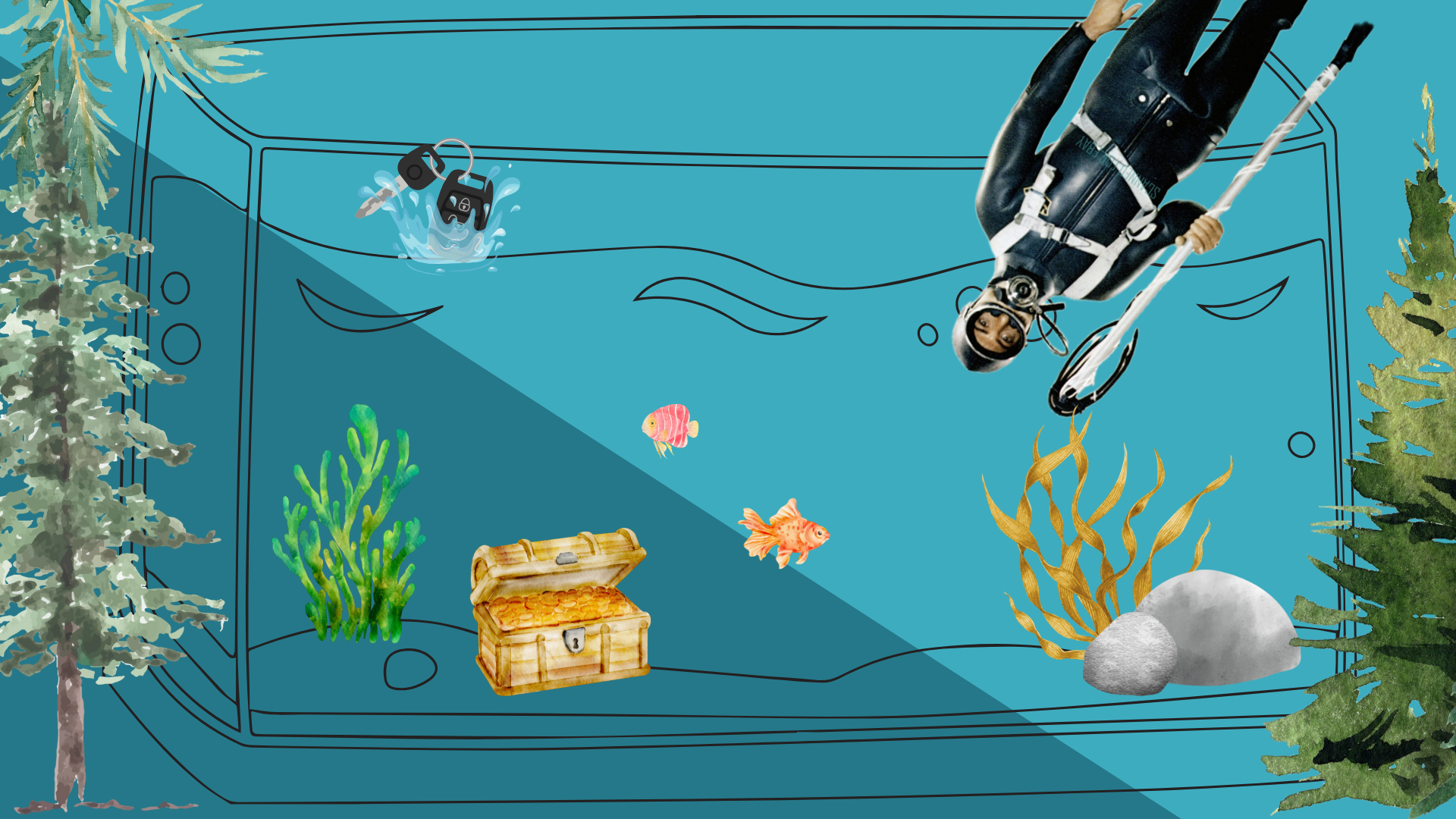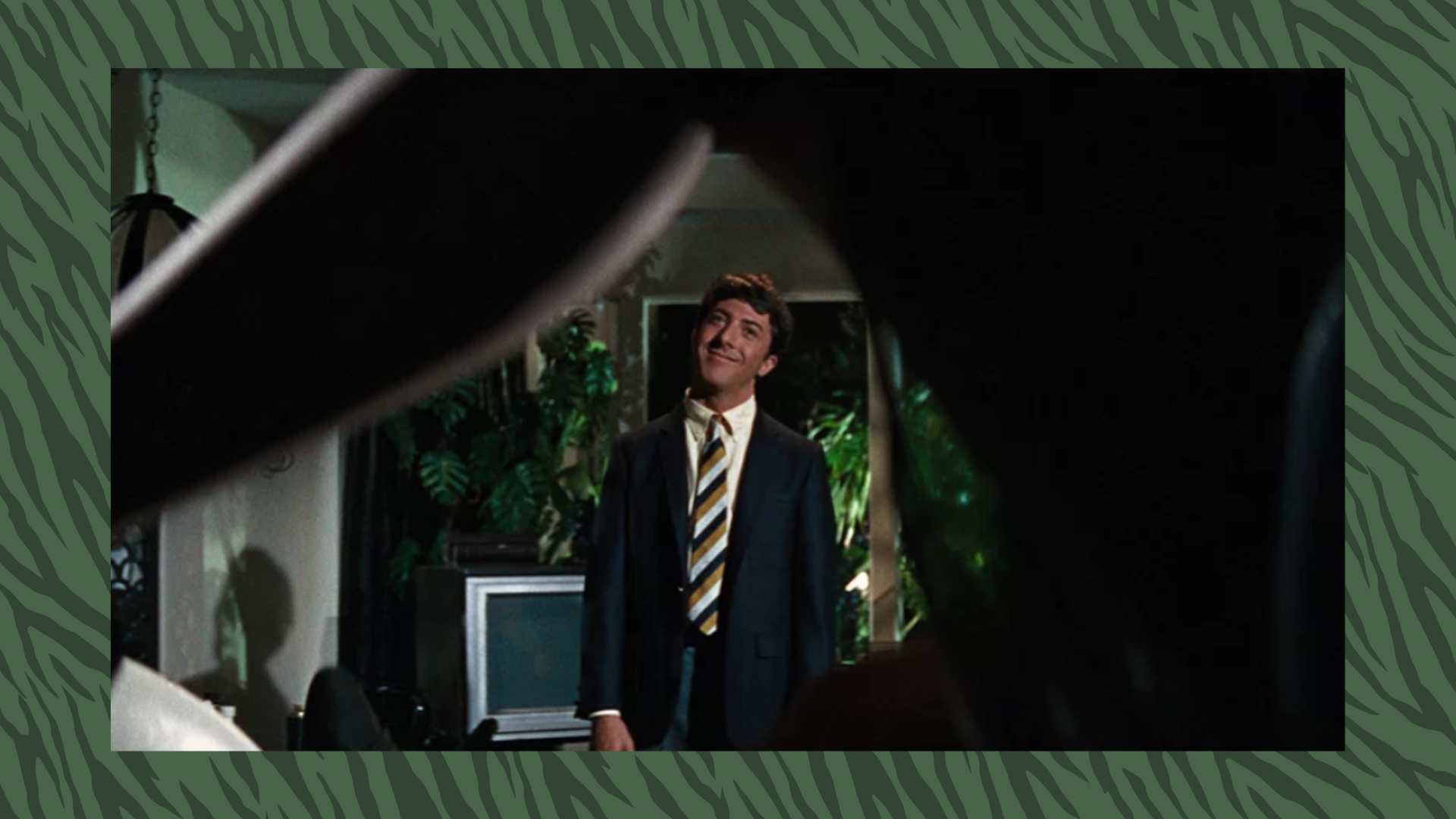The Graduate
And here’s to you
“I was a functioning alcoholic until no one noticed my new aesthetic.” - Taylor Swift, Fortnight.
Anne Bancroft (Mrs. Robinson) and Taylor Swift (Fortnight music video)
Intro
Christopher Voss is a former FBI hostage negotiator. He says there are two keys to successful negotiation.
First, the willingness to walk. If you need the other side to say yes, you’re at their mercy. Second, letting the other side feel like they have control. Sometimes, people say “no” not because they disagree, but because they want to prove you don’t control them. Disagreeing is their way of asserting independence.
I would argue Mrs. Robinson is an expert negotiator.
The Graduate is a 1967 movie about Benjamin, a recent college graduate, finding his way. But not really. It’s a coming-of-age story that doesn’t look fondly on adulthood. Characters are jaded and their ah-ha moments center around accepting unpleasant truths.
You could write a thesis on this movie and I’m sure many people have. But for the sake of Break My Heart, I want to know…
Is The Graduate a love story or a story about control?
Mrs. Robinson and Benjamin talking in the Taft Hotel bar.
Part 1: Submerged
Water is a big symbol in The Graduate.
In Act I, Benjamin is submerged in the expectations of adults. Instead of exploring open waters, he’s confined to finite waters. He’s in front of a swimming pool when talking to Mr. McGuire about his future career in “plastics”, in front of a fish tank when retreating to his room during the party. His parents make him put on a scuba suit as entertainment…then push him down into the pool repeatedly. Benjamin is aimless, indecisive, and sinking to nowhere.
“Plastics.” -Mr. McGuire
Until an eagle-eyed housewife hunts him down.
“Would you drive me home?” - Mrs. Robinson
The idea of Mrs. Robinson as a hunter is strengthened by her animal print clothing, tanline-striped-skin, and ever-present cigarettes. If Benjamin is submerged in water, Mrs. Robinson is on fire, smoky, animalistic, and grounded. She is frequently shot with plants, as if in a jungle.
If Benjamin is inert, is it any surprise that Mrs. Robinson’s legs catch his eye?
Mrs. Robinson has a leg up on Benjamin, literally.
Even alone in a hotel room, even with Mrs. Robinson’s directness, Benjamin can’t make a move. It’s laughably unsexy.
But when Mrs. Robinson calls Benjamin inadequate (aka a virgin), he wakes up with a clap. He slams the door, shuts off the lights, and they have sex—just as Mrs. Robinson wishes. This is why I argue she is a master negotiator. She orchestrates Benjamin’s imaged strike of independence. She convinces him that the very thing she wants is the thing that will give his life meaning.
“Wood or wire?” - Benjamin
God Bless You, Please, Mrs. Robinson
Make no mistake, Benjamin isn’t the only one floundering.
Simon & Garfunkle’s upbeat song Mrs. Robinson recounts the housewife being checked into a mental institution: “stroll around the grounds until you feel at home” and “our files.” The song’s narrator, likely a doctor, presents religion as an unsatisfying alternative to agency. He tells her, “Heaven holds a place for those who pray.” Heaven sounds great, but what about this life? Here, it doesn’t matter what Mrs. Robinson does, “laugh about it, shout about it,” she’s trapped, “every way you look at this, you lose.”
“Did you know I was an alcoholic?” -Mrs. Robinson
But from above or below, we all have power. In the song, Mrs. Robinson hides something away in “your pantry with your cupcakes.” Maybe drugs, alcohol, or a secret spot for her and her lover, “the Robinson’s affair.” Either way, it’s not allowed, “you’ve got to hide it from the kids.”
“Put it in your pantry with your cupcakes” - Simon & Garfunkle, Mrs. Robinson
I would argue it’s not satisfying, either. As Taylor Swift sings in Fortnight (a song about a woman in a mental institution), “I took the miracle move-on drug. The effects were temporary.” Mrs. Robinson’s miracle drug is controlling Benjamin, the same way she feels controlled by others. Their power struggle plays out through the hotel lights—Mrs. Robinson wants them off, Benjamin wants them on. Mrs. Robinson wants to have sex—to control Benjamin—and Benjamin wants to take charge of his life.
Mrs. Robinson is a person defined by others. We never learn her first name. Her identity is limited to Mr. Robinson’s wife. Her character arc is seducing Benjamin then trying to protect her daughter. But what about her? Even art, the subject she studied in college, has become a tired conversation topic she can’t feign interest in.
Mrs. Robinson has lost herself. This affair might be stimulating and distracting, but its effects will be temporary.
Dustin Hoffman (Benjamin) and Anne Bancroft (Mrs. Robinson) of The Graduate
Part 2: Floating
Benjamin is out of the water and on a pool floaty, lite beer in hand.
The affair with Mrs. Robinson has taken the edge off, but it hasn’t given him purpose. The camera stays close to Benjamin’s face while the background rotates between the hotel with Mrs. Robinson, his parents’ pool, his own bed. It doesn’t matter where Benjamin is if he’s floating through life.
Benjamin flip-flops between the control of interchangeable adults. Mrs. Robinson unbuttons his shirt maternally before sleeping with him. Benjamin’s mother, dressed in a black negligee, asks him where he goes at night, as if she’s a wife suspicious her husband is cheating. Adults want Benjamin to be a blank slate for their wishes, not a person himself. He starts to sink again, figuratively and literally.
“Listen, could you just stop crying please?” -Benjamin
The movie arc is set when Mrs. Robinson forbids Benjamin from asking out her daughter Elaine.
Elaine crying in the club.
Benjamin doesn’t go on a date with Elaine because he wants to, but because other adults want him to. But once out with Elaine, Benjamin is moving. He drives fast, walks fast. The setting is usually a backdrop for Benjamin’s nothingness. Now, the camera angles are wide. He’s inhabiting the world.
He’s also a jerk to Elaine. He takes her to a strip club on their date, for goodness sake! Elaine crying marks the second time Benjamin acts. He pushes the stripper away (who was dancing by Elaine) and takes Elaine out of the club.
Benjamin is now motivated to date Elaine as a way to individuate himself from Mrs. Robinson. But disobeying is still acting in relation to orders. Instead of feeling out what he wants, Benjamin does the thing he is forbidden from doing, just to prove he can. Mrs. Robinson’s manipulation skills have fumbled.
The effect is mutual. By being a jerk, Benjamin is becoming the kind of man Elaine could use to differentiate from her parents.
Finally, Mrs. Robinson loses control. Soaked in rain water, Benjamin confesses to Elaine his affair with her mother.
“He’s too late” - Mrs. Robinson
Part 3: Running in Place
The pursuit of a “miracle move on drug” has ruined Mrs. Robinson’s life. Her marriage is crumbling and her daughter leaves for Berkeley.
Meanwhile Benjamin has moved from water to road. He drives across California pursuing Elaine, but ping-pongs north, south, north, south. He’s going nowhere fast.
Benjamin feels a heaping motivation to stop Elaine from getting married. But he never stops to consider if it’s what he wants. He just knows it’s what the adults don’t want.
The climax of the movie is Benjamin calling out just after Elaine’s marriage ceremony ends. Up in the rafters and framed in white, it’s like Benjamin is god calling to Elaine. She’s under the same spell as him. Just wanting to disobey her parents, not yet aware of what she wants herself. Her parents’ orders are still the sun around which she revolves.
But neither of them realizes this as they run out of the church hand-in-hand and board the city bus. All they know is that they’ve taken control of their lives.
Now, we get my favorite ending to any movie. The camera stays still on Benjamin and Elaine in the back of the bus, as their faces turn from elation to realization. They’ve made a decision with real consequences that can’t be reversed. For the first time, they consider their wishes independent of adults. Maybe this isn’t what they wanted after all.
They look to the other passengers on the bus, to each other, out the windows. No one is saving them. It reminds me of King George’s song “What Comes Next?” in Hamilton: “You're on your own. Awesome. Wow. Do you have a clue what happens now?” If you’re going to fight for control, be prepared to get it.
Benjamin and Elaine’s looks are enigmatic, but if you ask me, their eyes say, “Oh s*** what have I done. Now what?”
Finally, they have graduated into adulthood.
Jonathan Groft as King George in Hamilton.











